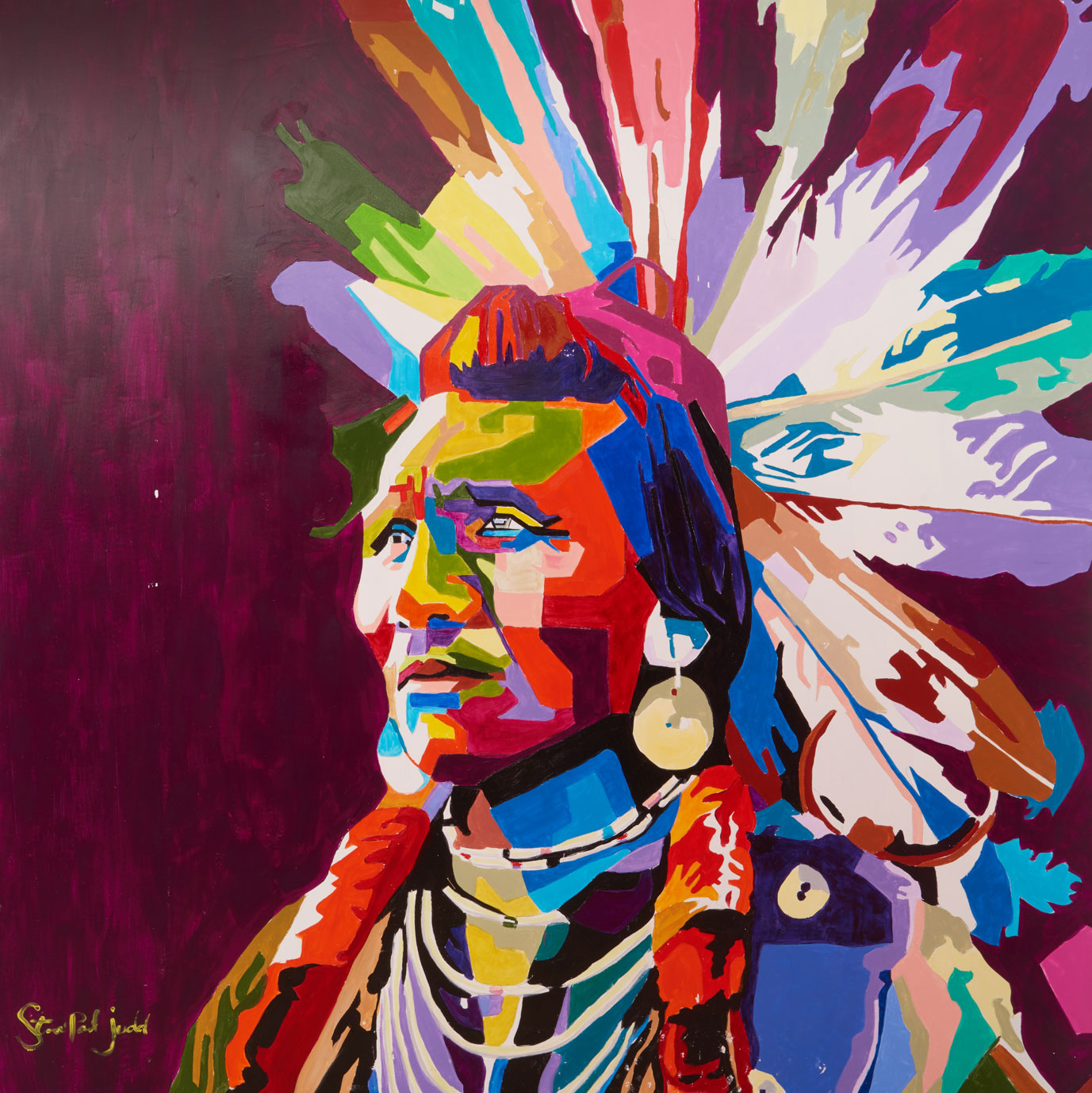USTA Fuses Sports, Art and Diversity in 'Be Open' Campaign
Work enters next phase at the U.S. Open
“When you’re open, you welcome all,” says tennis champion and equal rights icon Billie Jean King. “And you never forget what matters,” adds all-time great Venus Williams. “The point is to make people start talking,” offers current world No. 1 Naomi Osaka, a generational voice for social justice.
Speaking in a 60-second spot from the U.S. Tennis Association, those legends appear with other men’s and women’s tour stars to launch the next phase of “Be Open,” an appeal for diversity and inclusion introduced by the USTA last year.
Developed with DentsuMB (formerly dentsu mcgarrybowen), the work rolls out as the U.S. Open heats up. That tournament, the USTA’s biggest showcase, serves as a venue for “Be Open” activations, with crowds back in the stands after 2020’s fan-free event owing to Covid concerns.
One such activation, “Open Canvas,” fuses art and sports, decorating the Billie Jean King National Tennis Center in Flushing Meadows, New York, with oversized works from 10 diverse artists. Fans can bid on the pieces via QR codes, with proceeds benefiting the USTA Foundation and select charities. The effort expands on an initiative from last year’s Open, which placed artworks in the stands.
“When we developed the program last year, it was born out of a desire to reimagine the empty seats with beautiful imagery, while also acknowledging the reality of the world at that time and giving a platform to social justice,” USTA managing director of marketing Nicole Kankam tells Muse. “The program was so well received that we were compelled to evolve it for this year, taking advantage of the opportunity to make a bigger impact.”
The art explores themes of racism, LGBTQ+ equality and homelessness, among others, and will be viewed by an estimated 700,000 fans.
“We selected artists who represent a wide range of perspectives and backgrounds,” Kankam says. “We looked at each artist’s prior work through the lens of how it could translate to a large canvas, selecting those with vibrant and impactful designs that would likely capture fans’ attention on-site.”
“Together” by Islena Mil “really pushed me to think about the collective struggle of underrepresented groups,” says DentsuMB creative director Mike Wegener. “The tennis ball is a nice link to the sport, but also represents shared greater purpose, which is a powerful notion.”
Niege Borges’ “Moving Mountains” puts “warriors” in a contemporary context to comment on the inner strength of women of color:
In “All My Revelations,” Steve Paul Judd “challenges our perception that Native American culture is a monolith,” Wegener says. “The piece breaks down the figure into a tapestry of colors representing the hundreds of cultures and flavors within the Native American community.”
An online flipbook spotlights all 10 paintings.
Also this week, the USTA and creative agency The Many unveiled “Let’s Tennis,” an invitation for people everywhere to pick up a racket. Both that campaign and “Be Open” seek to broaden the appeal of a sport long decried (perhaps unfairly) by critics as overly white and elitist. The USTA looks to maintain momentum after grassroots tennis participation rallied 22 percent between 2019 and 2020. Folks seeking outdoor activities conducive to social distancing fueled those gains, following declines in the sport’s TV ratings.
Other campaign activations at the U.S. Open include:
• Ceremonies honoring “The Original 9,” a group of pioneering women who redefined the sport: King, Rosemary Casals, Nancy Richey, Julie Heldman, Valerie Ziegenfuss, Kristy Pigeon, Peaches Bartkowicz, Judy Dalton and Kerry Melville.
• Nightly “Champion to Champion” presentations recognizing teachers, healthcare workers, medical providers, frontline workers and first responders, coaches, and other community heroes.
• A Pride tribute celebrating the LGBTQ+ community, fitting for women’s tennis, with King, Martina Navratilova and other trailblazers helping promote progressive views on sexual identity and orientation.
• “HBCU Live,” acknowledging the role of historically Black colleges and universities in American history. Althea Gibson, who won five major titles in the 1950s and became tennis’ Black female superstar, attended Florida A&M.
CREDITS
CLIENT: USTA
Nicole Kankam, Managing Director, Marketing
AGENCY: DentsuMB
Lee Remias, Executive Creative Director
Mike Wegener, Creative Director
Kara Kummer, Associate Art Director
Jessica Eliasek, Executive Producer
Marieme Sall, Senior Producer, Integrated Production
Libby Morris, Senior Music Producer
Jessica Ryle, Associate Producer, Integrated Production
Tom Smith, SVP Account Management
Kristen Eglitis, VP Account Director
Lexi Hom, Account Executive
Chris Robertson, VP Integrated Strategy
Keely Adler, Director Integrated Strategy
PARTNERS:
ALCHEMY MEDIA
Music by: The Elements
PRODUCTION COMPANY: Paradise
Robert Stockwell, Editor
Olivia Curry, Editor
Kathleen Chee, Motion Designer
Elliott Powell, Colorist
Tracy Tran-Thomas, Executive Producer











